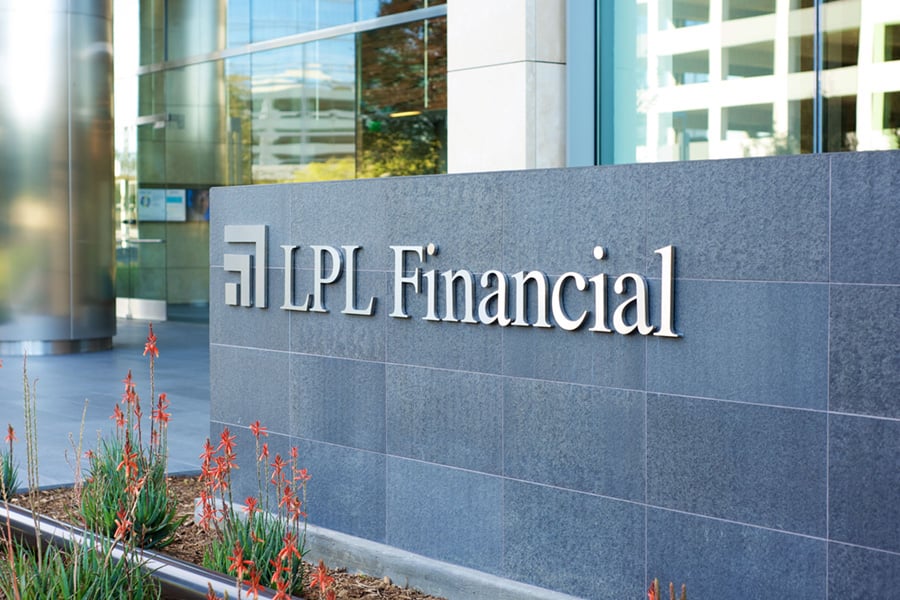Shares of broker-dealers and wirehouses soared in trading Wednesday, the day after Donald Trump was elected president.
By noon, shares of LPL Financial Holdings Inc. were up 8.7%, Raymond James Financial Inc., 6.1%, Ameriprise Financial Inc., 8.5%, and Stifel Financial Corp., 6.5%.
Shares of Bank of America Merrill Lynch, Morgan Stanley and Wells Fargo also benefited from the Trump victory. All were up more than 5% around 1:30 p.m.
Meanwhile, the broad market was also rallying, but not as sharply. At noon, the S&P 500 was up close to 1%.
The reason for the spike in shares of broker-dealers? The likelihood of a pullback on some financial regulations that affect wealth management firms under a new administration and a spike in the 10-year Treasury bill's interest rate, according to one analyst.
“There are definitely multiple factors at work based on some of the stocks that are rallying,” said Michael Wong, senior analyst with Morningstar Inc. “To an extent, the market is pricing in more leniency of those firms more affected by current financial regulations.”
The retail financial advice industry has spent much of the past year struggling to comply with the Department of Labor's new fiduciary rule, which is to take effect in April.
The 10-year Treasury note rose 2% on Wednesday, its highest level since January.
“The 10-year Treasury yield is up quite significantly today, and that's a fundamental lever of earnings for many of these firms. Higher interest rates help [the Charles Schwab Corp. and TD Ameritrade Holding Corp.,] but LPL and Ameriprise are more regulatory driven than interest rate driven.”
Schwab and TD Ameritrade shares climbed, respectively, 4.2% to $33.71 and 3.9% to $35.80 by midday.
“Which is having the bigger effect?” Mr. Wong asked. “It depends on the firm. For Schwab or Ameritrade, there's more weight on interest rates, but for certain wealth management firms, it's part of both.”
While on the stump, Mr. Trump did not make many remarks on financial regulation, according to a report Wednesday morning by the Wall Street Journal. However, it's clear that he would like to kick to the curb the landmark 2010 Dodd-Frank financial reform bill, which became law in the wake of the Great Recession.
“We have to get rid of Dodd-Frank,” he told Fox News in October 2015,
according to the Journal. “The banks aren't loaning to people that need it. The regulators are running the banks.”
More broadly, Republicans who control both the House and the Senate next year could pass legislation aimed at rolling back financial regulations.
Mr. Wong noted that, in some cases, changes at investment banks have already taken hold and it may be too late to change them.
“Some of the changes in the financial sector are already done,” he said, noting that banks have already divested commodities operations and proprietary trading under the Volcker Rule, which is part of Dodd-Frank.
(See:
Cambridge, Cetera will continue to pay commissions on IRAs under DOL fiduciary )
Christine Idzelis contributed to this report







